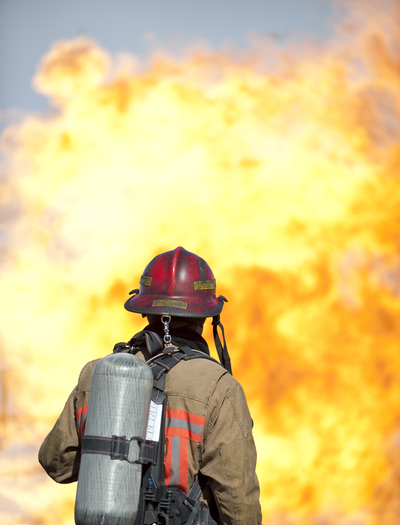Ingested capsule monitors heat stress in firefighters
Victorian firefighters ingested a capsule capable of relaying live data about their health during a simulated training exercise which saw 50 volunteer firefighters evacuate 20 people from a burning medical centre.
The exercise was part of a pilot study investigating heat stress in firefighters. The study aimed to help firefighters learn more about how their bodies reacted to working in hot, stressful situations and when to take breaks, according to CFA Health and Wellbeing officer Peter Langridge.
“This data has resulted in a change in work patterns and exposure times to increase the safety of firefighters. If we see their core body temperature increasing then we know to remove them from the fire and put them into the rehabilitation area,” said Langridge.
“Working in hot environments will stress different people at different rates. There is no set formula for how long a person can fight a fire before they start suffering from heat stress or dehydration and management is the key to protecting our firefighters.
“The capsule fed us excellent live data about the heat stress and welfare of individual firefighters and where they were located.
“While personal protective clothing has minimised the amount of radiant heat our firefighters are exposed to, we still need to manage the risk of heat-related illness,” said Langridge.

The study took place during a simulated training exercise in Echuca, which saw volunteer firefighters from three different brigades work together to evacuate 20 people from a burning medical centre.
By ingesting a body temperature capsule and wearing chest monitors, the 50 firefighters provided real-time performance data including core body temperature, heart rate, skin temperature, respiratory rate and effort, as well information about location and body movement.
Ben Greenaway, managing director, BMedical, said, “The pilot study was an excellent opportunity for BMedical to support Australian firefighters. Equivital EQ02 LifeMonitor uses state-of-the-art technology and provided the firefighters with a wealth of information about their vital signs.
“The next step is a national study involving other fire agencies as more research needs to be done in the area of heat stress in firefighters.”
The Equivital EQ02 LifeMonitor is already being used by firefighters in the UK, US and China. The systems are also used by the Defence Science Technology Organisation to evaluate fitness for military roles, AFL Players, racing car drivers, Bear Grylls from the Discovery Channel Show and numerous research projects in universities across Australia. Redbull Stratos also used Equivital to monitor Felix Baumgartner’s vital signs during his world record jump.
Contract labour in mining: do savings outweigh safety outcomes?
Australian researchers have analysed decades of research on contract labour in mining, arguing...
Psychosocial risk management: eight trends with tips
Psychosocial risk management has become a central pillar of workplace safety and organisational...
50 in 2024: Victoria's workplace fatalities figures
Transport, construction and agriculture were Victoria's deadliest sectors in 2024, with...










